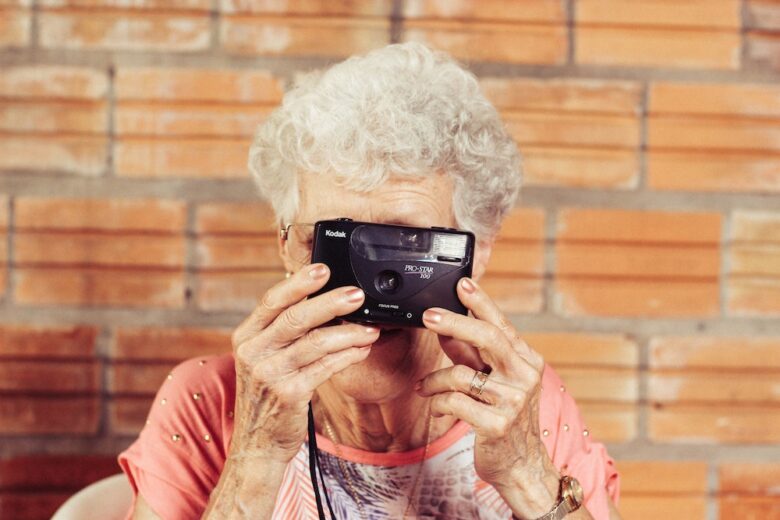Five common elderly behavior changes and ways to deal with them
We all have different normal thoughts, emotions, and behaviors as people. These recurring patterns define who we are.
Nearly everything we do involves our personalities. It has a significant role in who we are as people and how others see us. Many attributes or characteristics influence personality. Age-related changes in behavior and personality can occasionally occur.
According to studies, the personality changes as we age are often gradual and are not alarming. However, changes that occur unexpectedly, intensify over time, or appear and disappear might be alarming for family caregivers.
Here are six potential causes of behavioral changes in elders, along with solutions for each.
1) Aggression and hostility
Unfortunately, an elder’s primary caretaker is frequently the object of their rage. Find the source of their irrational rage. Resentment can be aroused in elderly people dealing with critical aspects of aging, such as memory loss, chronic pain, and family loss.
It may also be an indication of underlying disorders like Dementia. Consider their behavior as a means of expression. A person with Dementia may display aggression to communicate pain, confusion, or fear.
Understanding these emotional outbursts as signals, rather than personal attacks, can help you respond with greater empathy and patience. Also, it is worth noting that seeking professional help, like a trained in-home caregiver, can become crucial in maintaining both your well-being and theirs.
Now, doing thorough research and due diligence is essential to choose a trusted provider who offers the best care for your loved one. In this regard, resources like any directories listing the Best Home Care Agencies in Philadelphia (or in the place of residence) can help in finding reliable support that matches your parents’ needs and give you peace of mind.
2) Poor personal hygiene
In many cases, older people refuse to take a bath, change their clothes, and practice good personal hygiene. Family caregivers may find it to be quite frustrating. Finding out why an elder has stopped taking a bath is the first step.
If depression is the cause, discuss treatment options with their doctor. Have a trained caregiver from a home care agency near me assist the elderly with bathing if they don’t want a family member doing it for them. Use shower chairs and other bathing devices to give stability if an elderly person fears the water or worries about slipping in the tub. With fearful Dementia patients, exercise extra consideration.
3) Paranoia, delusions and hallucinations
The symptoms of paranoia and hallucinations in the elderly might vary widely. They may falsely accuse others of abuse, see objects that aren’t there or think they are being attacked. It can be very challenging for caretakers to identify and correct these behaviors.
The presence of hallucinations and delusions in elderly people is a serious indicator of a medical or psychological issue. Keep track of the symptoms and talk to a doctor immediately. Never attempt to reason a delusion away. Validation is an effective coping strategy. Recognize the senior’s worries and sense of reality. Redirect them and reassure them of their safety if they are terrified.
In cases where these behaviors become increasingly difficult to manage, turning to a trusted homecare agency in Philadelphia or a service in your local area, can provide professional support and guidance tailored to your loved one’s specific needs. These agencies often have trained staff experienced in handling complex behavioral changes, helping ensure your loved one receives compassionate and appropriate care in a familiar environment.
4) Refusing outside care
Opting for in-home care can sometimes leave the elderly feeling as if their families are unable or unwilling to provide the care they need. This perception can inadvertently magnify their sense of vulnerability and dependency. Home care agencies are designed to bridge this gap.
Engaging in conversations about this choice and selecting the appropriate agency is crucial. True Care home care services, for instance, is renowned for its professional approach, offering reliable support to older people and their families. Understanding your loved one’s reservations towards in-home care is essential, as these could stem from resentment, fear, or a mix of both.
By sharing your thoughts and concerns openly, you can collaboratively find acceptable solutions for all parties involved.
5) Obsessive behaviors
Most elderly display obsessive and compulsive behaviors. Numerous diseases, such as anxiety, depression, dementia, and other neurological problems, might be linked to obsessive behavior.
The symptoms of an elderly patient should be discussed with their doctor. Identify the items that trigger their obsession. Avoid the triggers as much as you can, and do not indulge in their compulsions.
Look after yourself too
Even the most resilient people experience stress when caring for a loved one. Take measures to maintain your health and wellbeing if you are a caregiver.
It is important to prioritize yourself. If you let it, providing care can quickly become a full-time job. The failure to establish boundaries with a demanding elder can lead to caregiver burnout.
Photo by Tiago Muraro




